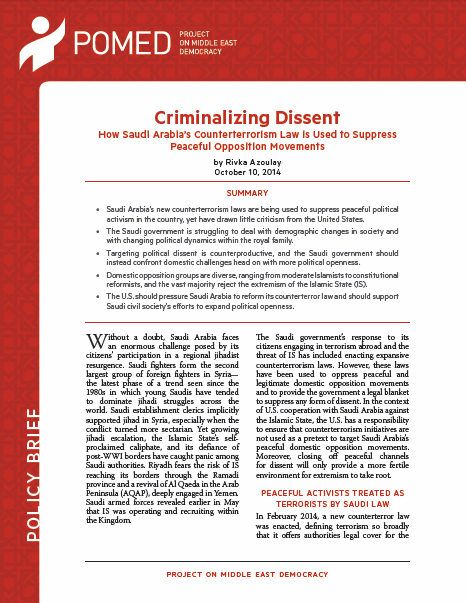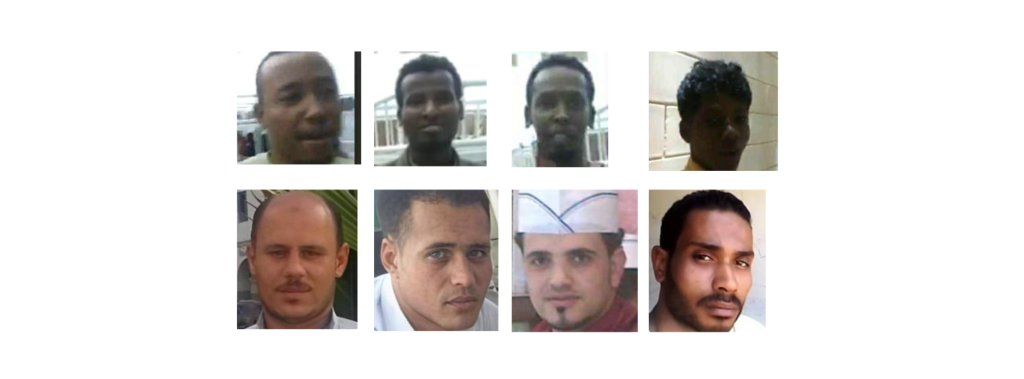For a full text copy of the brief, click here.
Without a doubt, Saudi Arabia faces an enormous challenge posed by its citizens’ participation in a regional jihadist resurgence. Saudi fighters form the second largest group of foreign fighters in Syria – the latest phase of a trend seen since the 1980s in which young Saudis have tended to dominate jihadi struggles across the world. Saudi establishment clerics implicitly supported jihad in Syria, especially when the conflict turned more sectarian. Yet growing jihadi escalation, the Islamic State’s self-proclaimed caliphate, and its defiance of post-WWI borders have caught panic among Saudi authorities. Riyadh fears the risk of IS reaching its borders through the Ramadi province and a revival of Al Qaeda in the Arab Peninsula (AQAP), deeply engaged in Yemen. Saudi armed forces revealed earlier in May that IS was operating and recruiting within the Kingdom.
The Saudi government’s response to its citizens engaging in terrorism abroad and the threat of IS has included enacting expansive counterterrorism laws. However, these laws have been used to oppress peaceful and legitimate domestic opposition movements and to provide the government a legal blanket to suppress any form of dissent. In the context of U.S. cooperation with Saudi Arabia against the Islamic State, the U.S. has a responsibility to ensure that counterterrorism initiatives are not used as a pretext to target Saudi Arabia’s peaceful domestic opposition movements. Moreover, closing off peaceful channels for dissent will only provide a more fertile environment for extremism to take root.
POLICY RECOMMENDATIONS
- The United States should oppose Saudi Arabia’s new counterterrorism law and send high-level advisors to provide technical assistance on the drafting of effective counterterror laws that meet international standards.
- U.S. officials should continue to monitor and observe trials of activists, particularly those prosecuted under the counterterror law, and publicly comment on the proceedings.
- The United States should support independent investigations into the treatment of political prisoners and support a review of the Saudi criminal codification strategy.
- The United States should consistently seek to create space for the work of Saudi civil society and peaceful activists to encourage a gradual political opening.
Rivka Azoulay is a doctoral candidate in politics at l’Institut d’études politiques de Paris (Sciences Po Paris), where she is writing her thesis titled “The Reinvention of Tradition? A Political Sociology of (Neo)notables in the Arab World: The Comparative Cases of Egypt and Kuwait.” Azoulay has also served as a research fellow at the Center for Gulf Studies at the American University of Kuwait. She holds a MPhil in Comparative Politics of the Islamic World from Sciences Po and a BA in International Relations from the University of Groningen.
Photo credit: Omar Chatriwala, Al Jazeera English





|
Saudi Arabia Executed a Prominent Journalist who Exposed Corruption. The World Should Act Before Other Dissidents are Next.